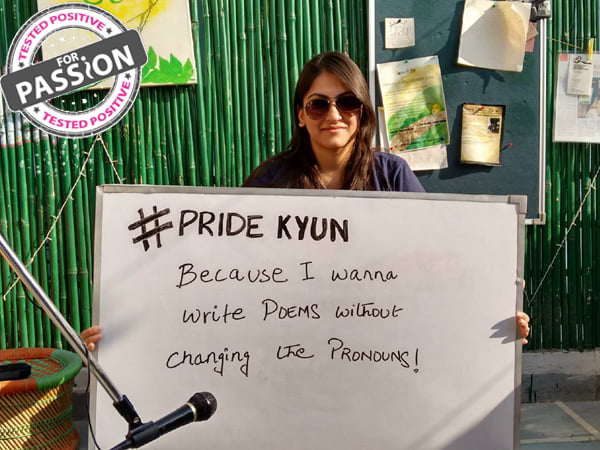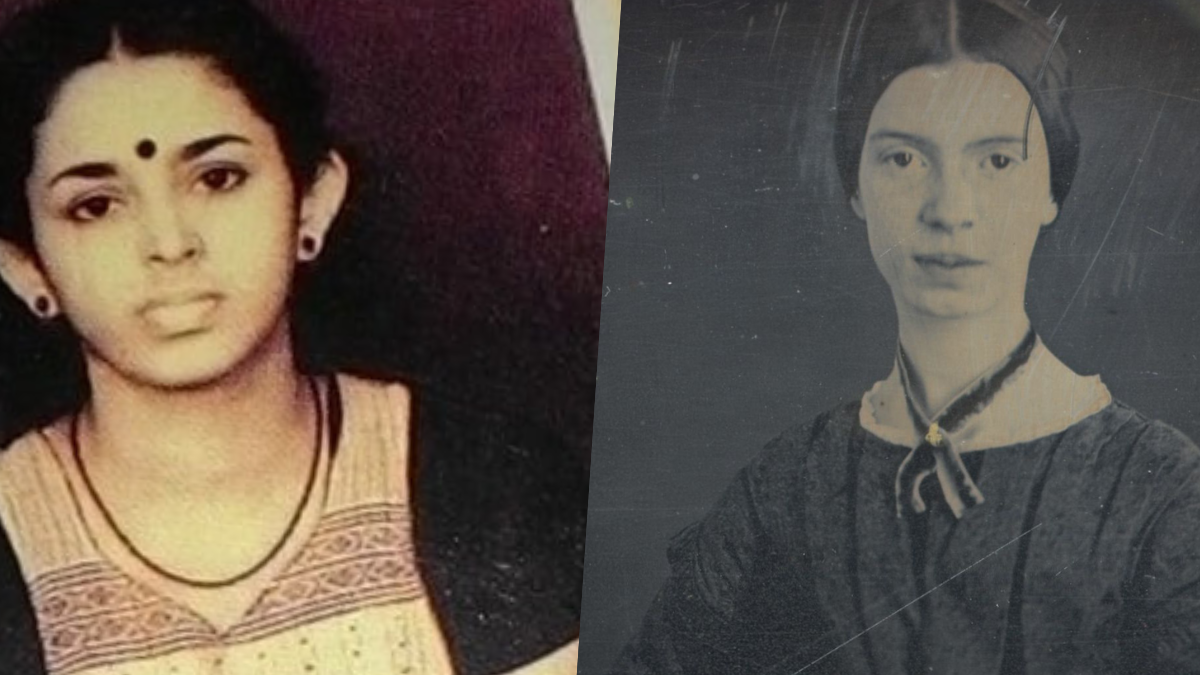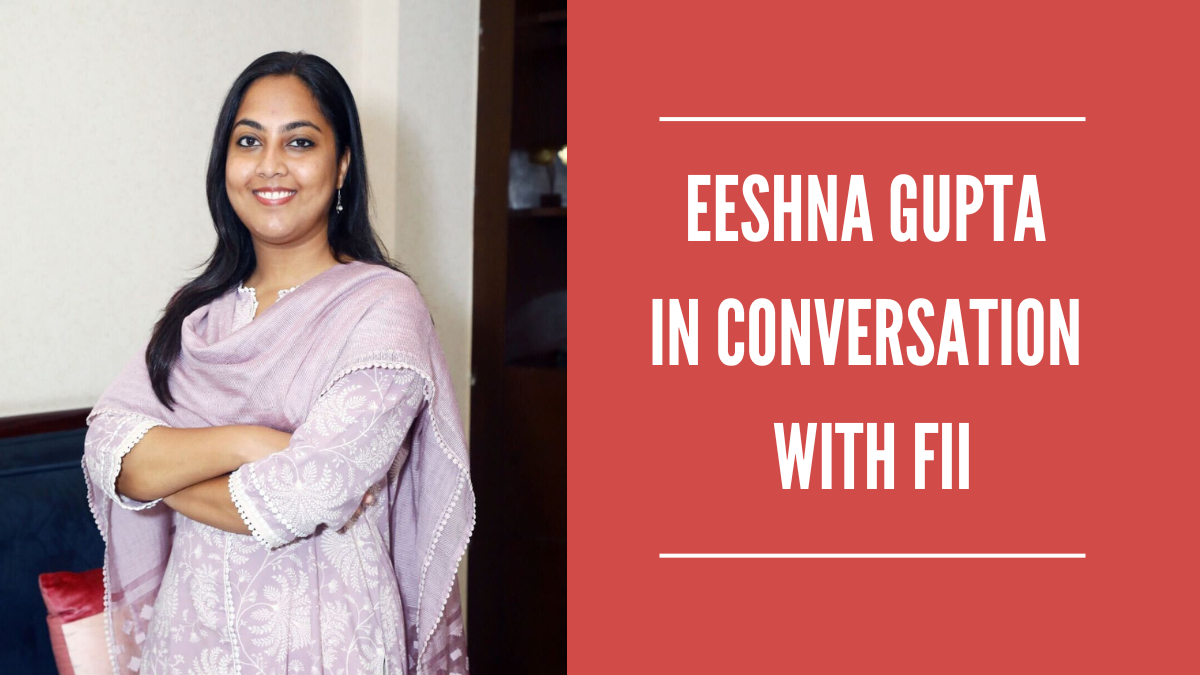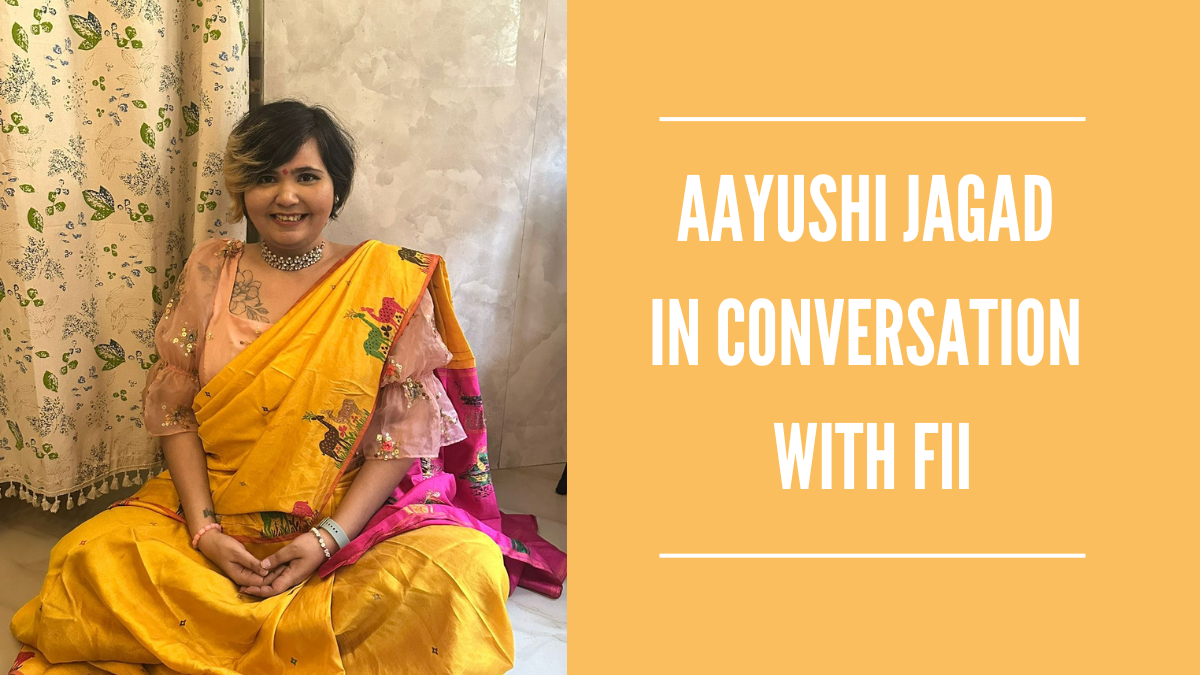There Are Days When I Really Miss You, Sylvia
Nights Like These I Wonder, What If
Things Were Different That One Night
And You Had Met Me
At That Party. 1956, February 25.”
– My Mad Girl’s Love Song by Aditi Angiras
When one thinks of poets the associated image is that of a quiet, dreamy person with drooping eyes dressed casually, drawling away or writing a piece on a rainy afternoon. Aditi Angiras will break that facade with her sardonic yet pleasant sense of humour that is quirky and relatable. The poet and founder of the art of the Spoken Word initiative Bring Back The Poets is down to earth, amicable and empathetic. Yet there is a strong conviction behind her work and its impact.
An intersectional feminist and queer activist, she uses the power of words to communicate and inspire. We caught up with Aditi Angiras at a poetry reading event organised by Bring Back The Poets at Akshara Theatre, Delhi on January 21, 2018, before the interview over email. Let’s hear from the poet:

Aditi Angiras (left) hosting The Reading Room at Akshara, Delhi on January 21, 2018, with co-organizer Uttaran Das Gupta. Image Credit: Udita Chakrabarti
Udita Chakrabarti: First of all, why is poetry your personal medium of expression? You have been involved in music and rapping before moving on to poetry. Is there a nexus between the two art forms?
Aditi Angiras: I guess because poetry is cheap and pocket-sized. You don’t need to rent a studio or buy equipment. You can tuck away your journal in your socks or under your bed. You don’t have to worry about someone running into it in your closet, till you’re ready to fashion a show.
Nexus in the way that all things art are connected. Rap trained me in the art of writing like a mentor, taught me my metaphors and syllables before studying literature could.
UC: A lot of your poems are free verse poems. To a layman, how would you explain a free verse poem as opposed to prose?
AA: I don’t know if I know the difference and if a layman should care. The choice sounds more blue ink or red ink; I write with either and call them both poems. Although I’d ask the layman to be curious instead about the writings of the likes of Maggie Nelson or Anne Carson. They are genre bending-don’t-know-which-shelf-to-sit-on books.
UC: Has there been any personal incident(s) which inspired you to write one or more of your poems? We are particularly interested in the context of My Mad Girl’s Love Song.
AA: Where else to write from? Of course, poetry can also be auto-ethnographic. Sometimes a war-cry, sometimes it whimpers responses to the world within and without us. My Mad Girl’s Love Song is my love song to Sylvia Plath the poet, and the possibilities if we’d met in 1956, on February 25.
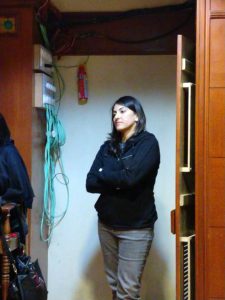
Aditi Angiras at The Reading Room at Akshara on January 21, 2018. Image Credit: Bring Back The Poets
UC: Bring Back The Poets arranges a lot of workshops on poetry and poetry therapy among other things. How do you reach out to attendees of these workshops and what is poetry therapy?
AA: Through Bring Back The Poets, we’re always trying to make poetry more accessible to people. First, it was the open mics in public places and now it’s the workshops. We’ve not really thought about the outreach, our Facebook page has some 3000-4000 likes and word gets around organically. Although I think we should have a plan.
As a part of the Poetry Therapy Society of India, we believe that the act of sharing your story has superpowers. Some do it with paint, some prefer writing it out.That’s what it is.
Also Read: 8 Excerpts By Indian Women Poets That Prove “Poetry is Not a Luxury”
UC: You once said “Poetry is politics”, in response to stereotyping of poets. How do you feel about the current scenario on queer politics in India?
Aditi: Well, yes. Everything is political – what you eat and don’t eat, where you work, who you sleep with, what you watch or wear, etc. It’s about more than one thing, that’s what so queer about it. It’s more than Section 377 and finding social acceptance or saying we’re normal just like you. It’s about radically changing things, everyday things, we have to keep pushing and we are.
UC: As an intersectional feminist, how important are the concepts of gender neutrality and inclusivity to you?
Aditi: In terms of writing, very. Language needs to keep expanding, to allow us to imagine more than one or two ways of existing. Little linguistic rebellions are also political acts, they slowly help us change what we’re used to thinking. Like in the 70s, Ms. as a prefix instead of Miss or Mrs found a lot of feminist favours, to show that there’s more to a woman than her marital status. Or how in one of the stories I’m writing, “Mx. Dalloway said they’ll buy themselves some flowers today”.
UC: You have edited works of poets from various South Asian countries. As per your experience, how well acknowledged or represented are feminist and queer dialogues in such works?
Aditi: In the digital anthology in question, two of the three editors are queer and all three editors are women. I do not know about other South Asian poetry anthologies but for us, in addition to the identities of the poems and the poets, even the method counts. And we promise to keep bringing more to the murmur that world literature is.
UC: What do you reckon is the future of poetry in India and worldwide in the next 10 years? Do you have any message for budding queer and feminist poets in India?
Aditi: It’s a cockroach, it’ll survive even the end of the world. In fact, we always survive the end of the worlds because of it.
Nope, just keep writing and you’ll be alright.
Besides workshops and other open mic events, Aditi Angiras and her organisation Bring Back The Poets arranges poetry readings every third Sunday of the month at Akshara Theatre, Delhi. Give it a go for some touching poetry and to celebrate their creators.
Also Read: 9 Poets To Understand Lesbian Desire And Female Homoeroticism
Featured Image Credit: iDiva
About the author(s)
A queer activist, feminist and former lawyer with an active interest in humanitarian causes. She loves photography, revising her Spanish lessons, studying cultures and history, and travelling (or reading about it when she can't).
